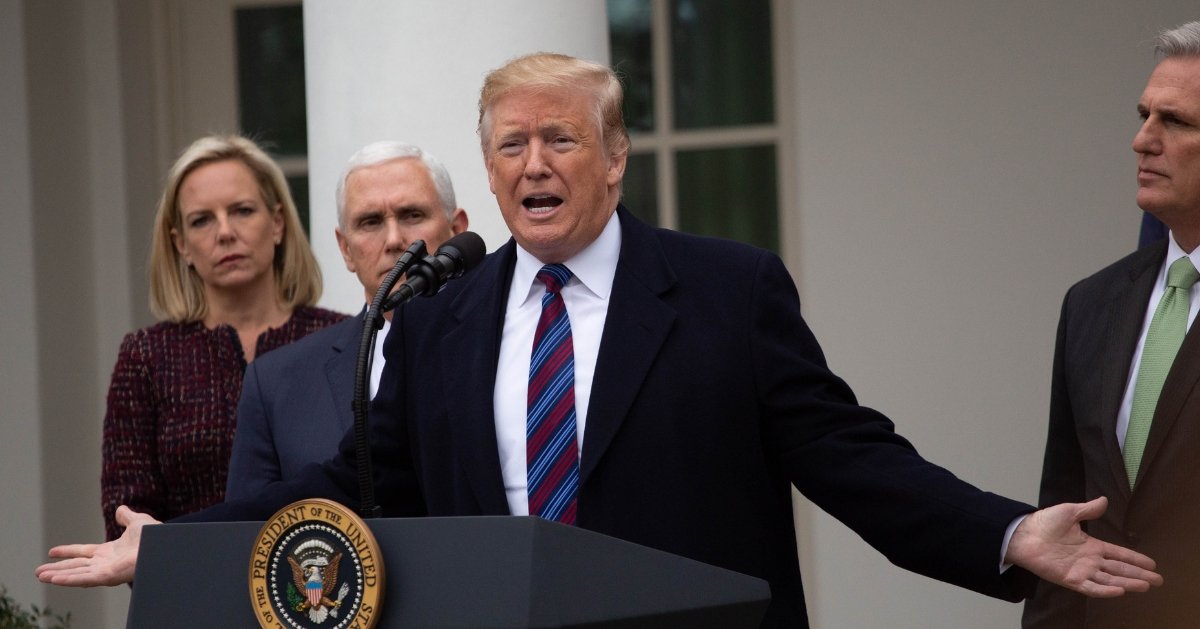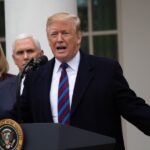

Pete Marocco, a key figure known for leading significant changes in U.S. foreign aid, has left USAID amidst a mix of responses about his impact, Fox News reported.
His departure draws attention to ongoing debates about the U.S. Agency for International Development's future under modified leadership.
Marocco, a skeptic of foreign aid's role, had a substantial influence on USAID. He was part of major U.S. departments, including Defense, State, and Commerce. His disengagement from USAID concludes a tenure that saw major budgetary and operational shifts.
Marocco embarked on his USAID mission with the endorsement of President Donald Trump. Initially tasked with reviewing and trimming foreign aid expenses, he was recognized for disclosing fiscal misuse, according to unnamed officials. A senior official recounted his role by stating Pete's significant mission to scrutinize every dollar used for foreign assistance.
Under Marocco’s leadership, the agency faced sweeping program cuts. USAID's network of programs dwindled from 6,000 to about 900, while overseeing a substantial budget and workforce. Marocco maintained that many initiatives under USAID were counterproductive to U.S. interests, portraying them as part of a "global welfare state."
His robust approach towards scrutinizing programs was controversial. Some Congressional Democrats particularly criticized his policies. Senator Brian Schatz consistently questioned Marocco's methodology and its implications for U.S. diplomacy.
Internally, there were signs of unrest. USAID employees circulated a detailed memorandum concerning the operational inefficiencies instigated by his leadership. It underscored complications in program planning and decision-making processes.
Moreover, Marocco imposed rigorous expenditure reviews at the Transition Initiatives office. This strategy involved additional layers of scrutiny for expenses surpassing a specific threshold. For many, these practices introduced uncertainty and hindered administrative efficiency.
On Capitol Hill, the changes prompted strong reactions. Some viewed them as a necessary reform aligning aid with American interests, while others perceived them as damaging to U.S. foreign relations.
The future direction of USAID remains uncertain with its new leadership. For now, a DOGE official has been appointed to manage the agency's operations. Marco Rubio, formerly the acting deputy administrator, had previously suggested USAID operated without sufficient State Department oversight before these reforms.
The departure of Marocco has raised questions about whether significant policy shifts will follow. Senator Schatz expressed concerns about whether the agency will now advance towards restoring its international credibility.
Marocco’s own statements clarify his enduring commitment to President Trump's vision. He described the former president as a transformative leader committed to addressing inefficiencies in government policies.
Details about Marocco's learning of his employment termination surfaced late last week, intensifying discourse on the future framework of U.S. foreign aid. His previous remarks underscored his continued support for Trump's administration and its principles.
As changes unfold, critical voices continue to demand accountability and direction. Critics argue that maintaining USAID’s credibility entails a significant balance between fiscal responsibility and assertive diplomacy.
Ultimately, agency employees and policymakers are keenly observing the ramifications of Marocco's departure. What remains pivotal is the path USAID will chart in promoting American interests globally while navigating these institutional changes.



